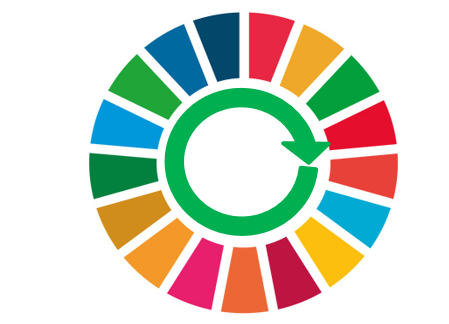New SAFER Project: Follow-up of road safety requirements in procurement of freight transport
The project team's thesis is that more people's lives can be saved if companies and organisations took full advantage of the opportunity to include road safety requirements in procurement.
Tania Dukic Willstrand, one of the experts in the research team, explains why the potential for using procurement and a structured follow-up methodology as tools are huge:
“We have learnt from other domains that it is when customers start placing strategic requirements on products and services that change really happens. Therefore, in this project we will be inspired by methodologies from the environment and work environment side. We can already see that development and improvement within these two areas really took off when a systematic approach with requirements, follow-up and actions were implemented”.
The researchers at SAFER now want to investigate whether it is possible to improve road safety by creating a methodology for following up road safety requirements in the procurement of freight transport. Today's procurements, which include road safety, often contain developed and carefully defined requirements for traffic safety, such as sobriety or requirements to comply with rules and laws that exist in the country where the transports take place. On the other hand, when it comes to following up these requirements, that does not often happen. One reason may be that there are difficulties in how do actually do the follow up in practice.
“The difficulties can be, for example, technical or organisational. Our new project aims to identify these difficulties, categorize them and propose solutions to be able to follow up in an efficient way. We hope to find a methodology that provides a reliable and quality assured way to confirm that road safety requirements are fulfilled”, Tania tells.
Basic foundation: Global goal and coherent recommendation
The global traffic safety target is to half the number of killed and injured people in traffic by 2030. This means that new actions need to be taken in order to achieve a greater effect than we have accomplished so far. After the third ministerial conference in 2020 in Stockholm, the Stockholm Declaration was adopted by the UN, which was based on 9 recommendations (see book Saving lives beyond 2020 - the next steps lägger länken här). This project aims to focus on recommendation number 2, Procurement, which has a bearing on the global sustainable development goals number 3, 8,12 and 13.
Follow up methodologies are lacking
Several initiatives have approached procurement and road safety requirements, for example Fair Transport. ISO39001, which is a standard for systematic road safety work, was developed in 2012. The certification helps to select in-vehicle safety functions when new vehicles are purchased, which also has a positive effect on the working environment. Many companies have in-vehicle technology in place that help the driver to plan their driving and for example, measure the driving style and fitness to drive. To improve road safety, many companies would probably benefit from a management system and certification, but to get there, requirements must procurements relating to freight transport must be set and compliance with these requirements must be able to be followed up in a reliable manner.
Several research studies have shown a positive road safety effect of these certifications. However, the effect is often short-term and does not reach full potential. Research has found that to ensure that the requirements are complied with, an effective follow-up method must be developed. Both Fair Transport (2020) and other types of management systems, such as ISO39001, encourage and contribute with methodologies for follow-up. These initiatives have come a long way, but they do not reach all the way.
“By looking more closely at the environmental reporting and green procurement, we hope to be inspired with new perspectives and identify new ways of working”, Tania concludes.
Skyltfonden is the financier
The project is funded by Skyltfonden and the project teams up with researchers from VTI, Volvo Group and Du Will. The project will partly include a literature study and workshops with additional partners that successfully have been working with requirements in procurement, will be carried out. Finally, a small-scall assessment will be concluded to follow up one or more requirements with a supplier according to the defined methodology. The researchers are expected to complete the study by the end of 2022.

